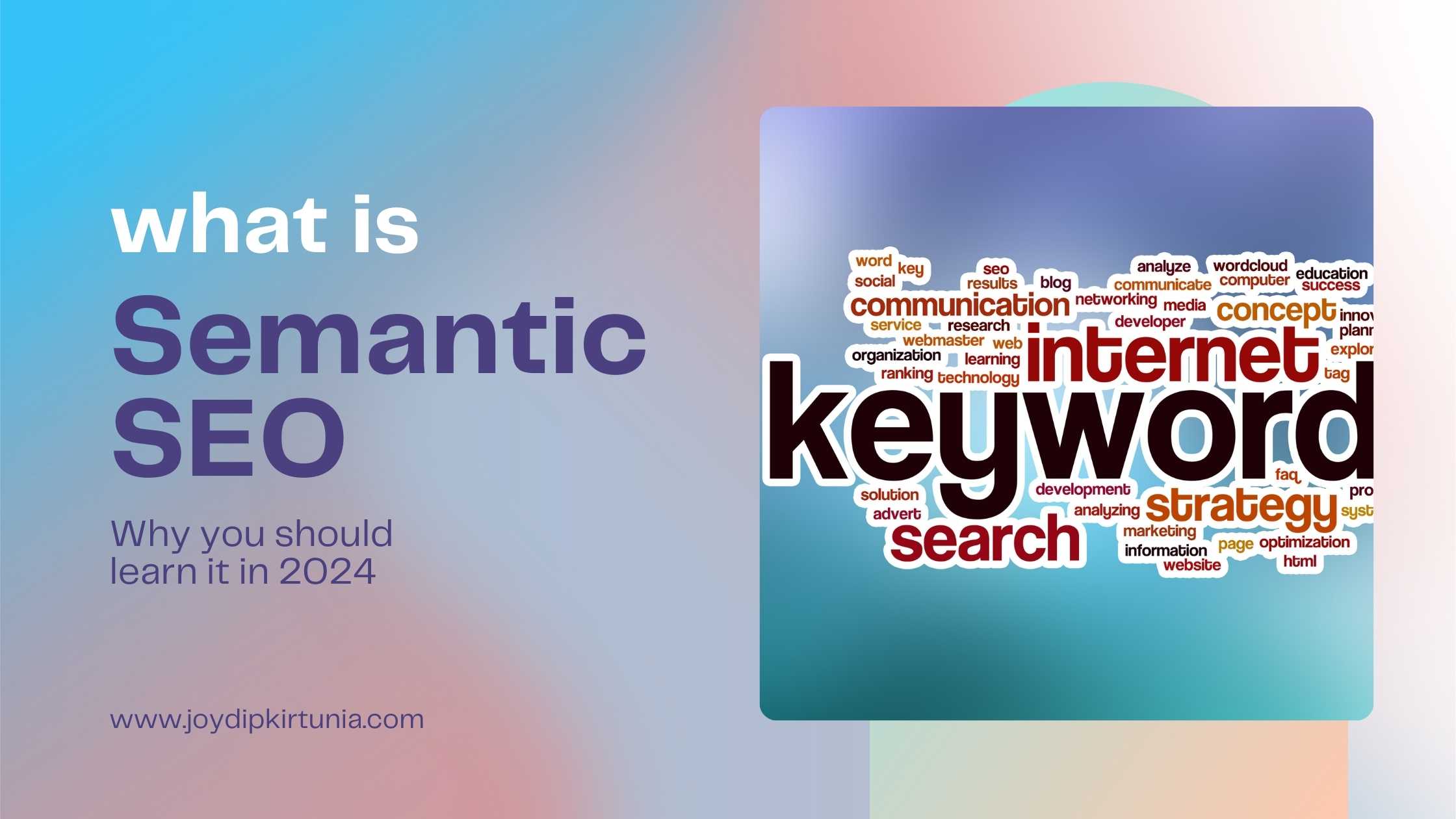
Gone are the days of simply stuffing keywords into your content and hoping for the best. Today, search engines are smarter, and they’re looking for content that truly answers users’ questions and provides value. This is where semantic SEO comes in.
What is semantic SEO?
Think of traditional SEO as focusing on specific words you want your content to rank for. Semantic SEO, on the other hand, focuses on the meaning behind those words and the broader topics your content covers. It’s about creating content that truly understands and addresses what users are searching for.
Why is Semantic SEO important in 2024?
There are several reasons why semantic SEO is crucial in today’s online landscape:
- Smarter Search Engines: Search engines like Google are becoming increasingly sophisticated at understanding the intent behind user searches. They want to deliver the best possible answer, not just a page with the right keywords sprinkled in.
- Improved User Experience: Semantic SEO helps you create content that is informative, engaging, and relevant to your audience. This leads to a better user experience and keeps visitors coming back for more.
- Long-Term Success: By focusing on topics and user intent, semantic SEO helps you build topical authority. This means your website becomes a trusted source for information on your chosen subject, leading to long-term success in search rankings.
Understanding User Intent:
Imagine someone searching for the “best laptops for students.” They’re not just looking for a list of laptops, they want to know which ones are affordable, reliable, and suitable for student needs. Semantic SEO involves understanding this deeper intent and crafting content that addresses those specific needs.
Building a Strong Foundation:
Here are some key aspects of building a strong foundation for semantic SEO:
- Identify your target audience and their needs.
- Research relevant topics and subtopics within your chosen niche.
- Use tools like Google Trends and Answer the Public to understand user search queries and intent.
- Create informative and well-structured content that covers your topics comprehensively.
- Utilize relevant entities like people, places, and events to add context and depth to your content.
- Link internally to relevant pages on your website to demonstrate connections between different topics.
Learning semantic SEO is an investment in the future of your online presence. By focusing on creating valuable content that resonates with your audience and search engines, you can achieve long-term success and establish yourself as a trusted authority in your field.



